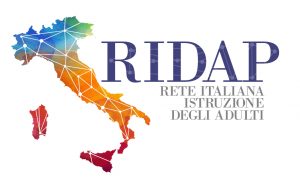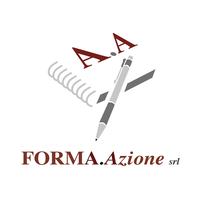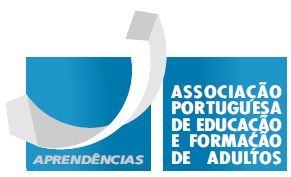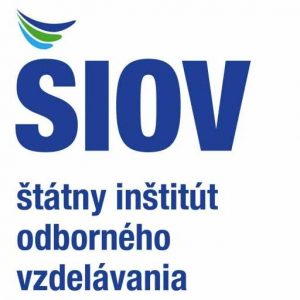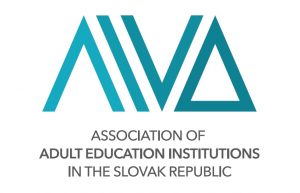Basic Skills Training Program
Teaching / learning of basic and transversal skills
Brief description of the main purposes and contents
The basic skills training program allows you to obtain basic skills in reading, writing, calculating, and information and communication technologies required to join an adult education and training course (EFA courses) or to be referred to a process of Recognition, Validation and Certification of Skills (RVCC) of basic level.
Reasons why the project / program is considered a “good practice”
Because it promotes the acquisition of basic skills to adults, fundamental for their later integration, as trainees in Adult Education and Training (EFA) or Skills Recognition, Validation and Certification (RVCC) courses and thus improve their social and professional situation.
Managing authority / organisation
Institute of Employment and Professional Training, IP.
Main target group
Adults disadvantaged due to lack of education and skills
Source of funding
European
Stakeholders involved
The stakeholders involved are the recipients of this program (Adults aged 18 or over, who have not attended or completed 4 years of schooling, or who, have attended and completed 4 years of schooling, but lack basic knowledge of reading, writing, and arithmetic); employers; and promoting and training entities.
Contribution of the practice in improving / promoting the social inclusion of the beneficiaries
This practice promotes the social inclusion of its beneficiaries because it promotes the acquisition of basic skills in reading, writing, arithmetic, and the use of information and communication technologies, necessary for entry into qualifying paths that lead to the acquisition of skills and the respective certification (integration into EFA courses or referral to RVCC processes of basic level, in its professional or dual aspect), thus providing tools that allow these beneficiaries to improve their social and professional conditions.
Elements of the project / program that could be easily transferred to other contexts
The creation of a training program in basic skills that serves as a basis for other courses to acquire higher qualification levels.
Description of the methods of implementation and any recommendations
This Program allows obtaining basic skills in reading, writing, calculation and information and communication technologies necessary to integrate an adult education and training course (EFA courses) or to be referred to a process of Recognition, Validation and Certification of Skills (RVCC) of basic level. The objectives of this Program are To promote the acquisition of basic skills in reading, writing, calculation and use of information and communication technologies, necessary for entry into qualifying paths that lead to the achievement of skills and the respective certification (integration into EFA courses or referral to basic level RVCC processes, in its professional or dual aspect). According to article 2 of “Portaria n. 1100/2010, from October 22nd” , “The program approved by this diploma obeys the following principles: a) The actions that make up the program must be integrated in projects to promote the qualification of groups of adults duly identified, that articulate the intervention of different entities operating in the same territory; b) The objectives and methodologies must be adopted according to the diversity of training needs existing in the group of trainees; c) The pedagogical organization of the actions developed under the program must be flexible and respond, in a differentiated manner, to the individual situation of each trainee; d) The trainees must acquire the basic skills that allow and stimulate the continuation of their training. ” The target group is adults aged 18 or over, who have not attended or completed 4 years of schooling, or who, have attended and completed 4 years of schooling, but do not have basic knowledge of reading, writing and calculation. The Promoting and Training Entities are: IEFP, I.P. job and professional training centers; IEFP, I.P. participated management professional training centers; and, Ministry of Education and Science public network teaching establishments. The curricular organization of the program includes six training units of 50 hours each, designated as: a) Reading and writing (initiation); b) Reading and writing (improvement); c) Reading and writing (consolidation); d) Calculus (initiation); e) Calculus (improvement); f) Information and communication technologies (awareness). The training units mentioned above are part of the National Qualifications Catalog. The management of the contents of the above mentioned training units is the responsibility of the trainer, according to the results obtained in the diagnosis. The duration of each action developed under the program is established according to the objectives of each project and the characteristics of each group, and cannot be less than 150 hours, nor exceed 300 hours, although in duly justified situations, the program can be increased by another 50 hours of training to reinforce learning in one of the training areas or skills in the different areas. When the duration of the action is less than 300 hours, the adult’s pathway may include only the deepening and/or consolidation training units, or exclude one of the areas in its entirety, because it deals with competencies that the trainees already possess. The trainees, according to the same Ministerial Order, are subject to a diagnosis that allows the identification of each one’s learning profile, and training groups are created by level of knowledge and skills affinity and by area. The number of trainees required to organize an action under the program may vary according to its nature, however, each training group cannot have a number of trainees lower than 12 nor higher than 15. The trainers of the actions developed under the program should, alternatively: a) Be holders of a teaching qualification at any level of education and non-higher education, necessarily complemented with a specialized training course, at a higher level, in an area corresponding to adult basic education; or b) Be holders of a teaching qualification at the 1st or 2nd cycle of basic education, in recruitment groups 110, 200, 210, 220 and 230 and preferably have experience in adult education and training. The trainers referred to shall also preferably have ICT (information and communication technologies) skills, verifiable through: a) The possession of the qualifications required, under the terms of the regulations in force, to perform the function of trainer within the adult education and training course or a process of recognition, validation and certification of skills, in any case at basic level, in the area of ICT key skills; or b) The possession of a certificate of ICT skills, issued under the terms of Ordinance No. 731/2009 of July 7. The actions developed under the program must be carried out by trainers in monodocency regime. When it is not possible to select a single trainer to guide all the training units, another trainer may be assigned to complement the training activity, with the authorization of the Regional Directorate of Education or the Regional Delegation of the IEFP, I. P., territorially competent. Assessment is continuous and qualitative, evaluating the progress of each trainee according to the competencies demonstrated in each unit at the end of the training pathway. Successful completion of the training units included in the program entitles the holder to a certificate of qualifications, in accordance with the model approved and contained in annex A1 of “Portaria n.º 612/2010, de 3 de agosto”, which is an integral part thereof. This program is governed by the following legislation: “Portaria n.º 1100/2010, de 22 de outubro”, amended by “Portaria n.º 216-C/2012, de 18 de julho” – Training Program in Basic Skills for access to adult education and training courses (EFA courses) of level B1 or B1+B2 or to processes of recognition, validation and certification of skills of basic level.
Project / program website or other online reference resources
